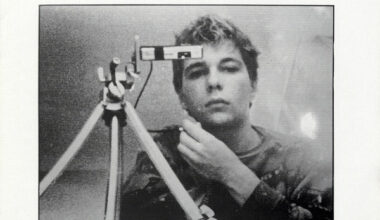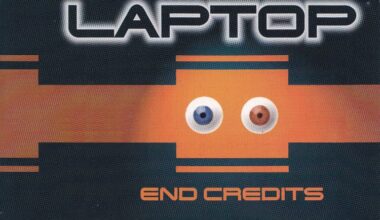
The Gods of Pop work in decidedly mysterious ways. For instance, how did Robert Marlow not become famous, a staple of early 1980s ‘Top Of The Pops’ and a regular customer of the ‘Saturday Superstore’? A cursory glance at his credentials reveal virtually no pop stardom box left unticked. Foppish, clean-cut looks? Check. Insanely catchy, literate synthpop bangers? Check. A long-standing association with Vince Clarke? Check. With knobs on.
In fact, Marlow even beat Clarke to the punch on two critical 80s pop fronts: buying an analogue synth, and working with Alison Moyet. In 1978, he accompanied the teenage Alf in Basildon punk band The Vandals, before persuading his mother to assist the electronic renaissance by taking out a hire purchase agreement for a Korg 700. And thus, Marlow and Clarke’s proto-synth outfit The Plan was born.
It didn’t last of course, and, to rub salt into the wounds, Marlow’s subsequent band, French Look, were abetted by a teenage amp-carrier who, at a rehearsal session in an Essex youth club, gamely took to the microphone himself. Clarke was also there with his new band Composition Of Sound, and knew a decent vocalist when he heard one. The Gods of Pop sniggered once more, and Dave Gahan was subsequently poached.
Cut to 1983. As Yazoo disintegrated, Marlow approached Clarke and asked about the possibility of a day’s recording at his favoured Blackwing Studios, a converted South London church. The resulting single, ‘The Face Of Dorian Gray’, is perhaps the most perplexing flop of the decade. It has literally all the ingredients of early 80s chart success: insanely catchy hooks, a melancholy singalong chorus, literary references impenetrable to eight-year-olds and the unmistakeable sheen of Clarke’s perfect pop production. It is magnificent. And yet… it dented the charts at number 83. British public, hang your heads in shame. You could have Robert Marlow in your hearts forever, and you bought Rod Stewart’s ‘Baby Jane’. You can’t be trusted with anything.
The album, ‘The Peter Pan Effect’, recorded in a rush of enthusiasm after successful sessions for the single, was quietly shelved. It’s eventual release, 16 years later, only came about when Sweden’s Energy Rekords persuaded original co-producer Eric Radcliffe to search for the master tapes in his Blackwing Studios bell tower. But it’s glorious: ‘Calling All Destroyers’ has hi-NRG beats and the campest maritime metaphors this side of ‘Carry On Cruising’. ‘Crying For The Moon’ somehow finds the musical middle ground between Depeche Mode and Eddie Cochran, and ‘The Kiss’ is genuinely soulful and sultry, a marrying of glacial synths and heartfelt emoting that Moyet herself would have been crazy to snub.
The Gods of Pop have had the last laugh, of course. The album has vanished once more, the 1999 CD now long-since deleted. But do some digging, and make Robert Marlow the pop star he always deserved to be, in our own hearts, at least.





